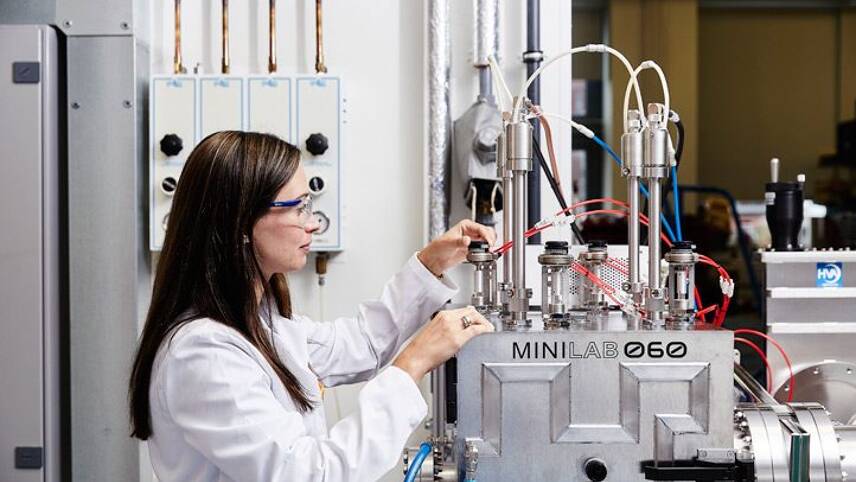Register for free and continue reading
Join our growing army of changemakers and get unlimited access to our premium content

The North West cluster could deliver 33
The North West Energy & Hydrogen Cluster, led by the University of Chester and Manchester Metropolitan University, will create a skills roadmap to develop the “complementary” skill sets of oil and gas works to harness new low-carbon technology such as hydrogen and carbon capture.
The Liverpool and Manchester mayors and Cheshire & Warrington Local Enterprise Partnership (LEP) are working with the North West Business Leadership Team (NWBLT) to develop a decarbonised cluster that could deliver 33,000 jobs and save 10 million tonnes of CO2 per year.
It follows the Engineering Construction Industry Training Board’s (ECITB) report from earlier in the month, which claimed up to £40bn could be invested in the engineering construction industry by 2050 to help upskill workers on the national net-zero emissions transition. Up to £7bn could be invested in the North West region, the report found.
ECITB’s report found that carbon capture and storage (CSS) and hydrogen would need to be deployed at scale to meet the net-zero target, but that sectors must attract new workers and upskill existing workforces in order to decarbonise the industrial and energy sectors.
The roadmap will combine the workings of businesses, universities, colleges and training providers to combat the existing skills gap.
North West Hydrogen & Energy Cluster’s Emma Degg said: “The North West is poised to come forward as the first decarbonised industrial cluster. New technologies such as hydrogen and carbon capture, smart grids and renewable energy projects are already transforming the engineering construction sector in the region.
“The density of industries such as oil and gas, can provide complementary skills to support the transition to low carbon energy technologies and we have significant skills in salt cavern storage – something that the ECITB report highlights as an area that needs investing in.”
Cluster race
Under the net-zero ambition, the UK Government has committed to fully decarbonising at least one industrial cluster by 2040. This has spurred a race between clusters in the North West, Teesside, Humberside, Grangemouth, South Wales and Southampton to become the first to do so.
BP, Eni, Equinor, Shell and Total have all signed up to spearhead the development of the Net-Zero Teesside project, which focuses heavily on the use of carbon capture, utilisation and storage technology (CCUS).
Elsewhere, Drax, Equinor and National Grid have published roadmaps fleshing out their plans to create the world’s first zero-carbon industrial hub in the Humber region by 2040.
As part of the Industrial Clusters Mission, the Government opened two innovation funds in October aimed at helping businesses located in key industrial clusters to plan and deploy technology to help reach net-zero emissions by 2050. Up to £140m could be accessed by successful applicants.
The North West cluster will focus heavily on hydrogen, with the North West Hydrogen Alliance’s (NWHA) chair professor Joe Howe claiming that attracting new talent to the sector is vital to the delivery of net-zero.
“The Net Zero transition is a great opportunity, but it’s going to require some significant investment in skills and training,” Howe said. “A lot of what needs to be implemented is not totally new technology, and already exists in some form, which is where the importance of skills comes in as we need the expertise to bridge that gap and put these technologies on site.
“This is a call to arms from industry, as the importance of developing skills in these sectors needs to be taken up by educational institutions and spearheaded at a Government level by the Department for Education.”
Matt Mace


Please login or Register to leave a comment.